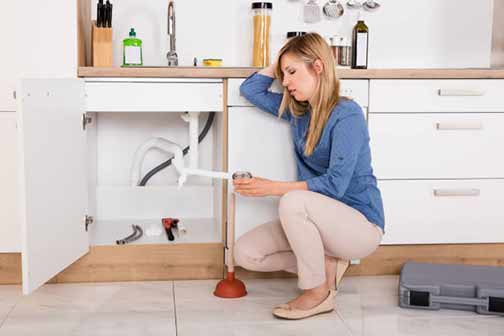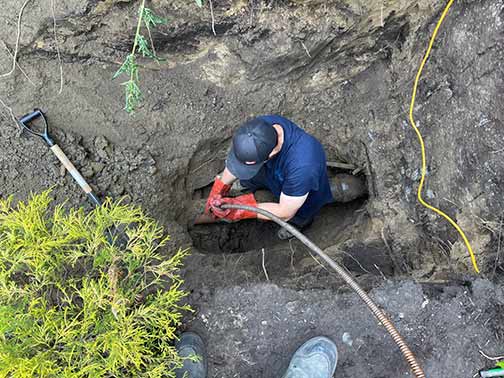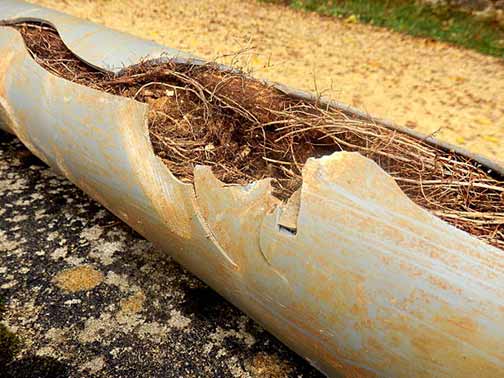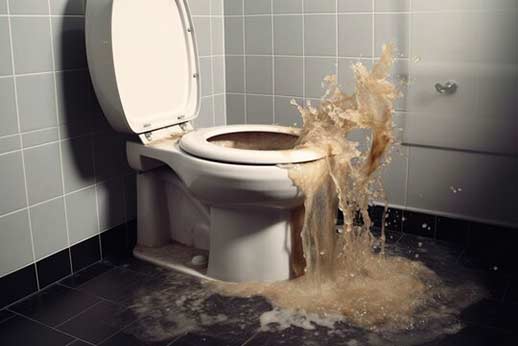Plumbing problems can be a nightmare for homeowners. Not only do they cause inconvenience and disruption, but they can also result in costly repairs. One of the most effective ways to prevent these issues is through sewer camera inspections. With the help of advanced technology, these inspections allow professionals to thoroughly assess the condition of your sewer lines, identify potential problems, and take proactive measures to avoid expensive plumbing disasters.
Understanding Sewer Camera Inspections
Sewer camera inspections involve using a specialized camera system to inspect the interior of your sewer lines. The camera, attached to a flexible rod, is inserted into the sewer line through an access point. It travels through the pipes, capturing high-quality video footage of the entire system.
These inspections are typically carried out by professional plumbing companies who have the necessary equipment and expertise. The recorded video footage is then reviewed by the plumber, allowing them to identify any issues or abnormalities within the sewer line.
The Benefits of Sewer Camera Inspections
Early Detection of Problems:
Sewer camera inspections enable the early detection of potential plumbing issues before they escalate into major problems. The high-resolution video footage provides a comprehensive view of the sewer line, allowing plumbers to identify signs of damage, blockages, corrosion, tree root intrusions, or other issues that may lead to sewer line backups or leaks. By catching these problems early on, homeowners can save themselves from expensive and extensive repairs down the line.
Accurate Diagnosis:
Traditional methods of diagnosing sewer line issues, such as excavation or guesswork, can be time-consuming, disruptive, and often inaccurate. Sewer camera inspections provide an accurate and detailed diagnosis of the problem. The video footage allows plumbers to pinpoint the exact location and nature of the issue, facilitating targeted repairs or replacements.
Cost-Effective Solution:
Investing in sewer camera inspections is a cost-effective solution in the long run. By identifying and addressing issues at an early stage, homeowners can avoid costly repairs that may arise due to neglect or delayed action. Additionally, these inspections help prevent emergency situations that usually result in higher expenses, such as extensive sewer line replacements or property damage caused by sewage backups.
Proactive Maintenance:
Sewer camera inspections offer homeowners the opportunity for proactive maintenance of their plumbing systems. Rather than waiting for a problem to occur, regular inspections can help identify potential issues and allow plumbers to take preventive measures. This may include clearing tree root intrusions, removing blockages, or applying protective coatings to prevent future corrosion. By staying ahead of problems, homeowners can ensure the longevity and optimal performance of their sewer lines.
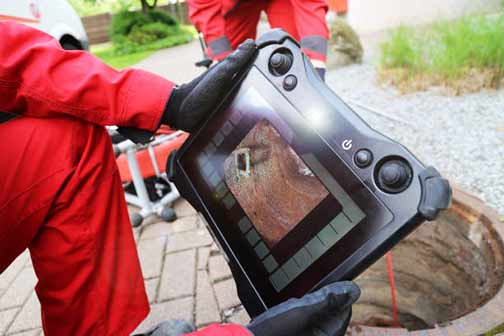
As the camera travels through the sewer line, it captures high-definition video footage of the interior. The plumber closely monitors the video feed, looking for any signs of damage, blockages, or abnormalities.
How Sewer Camera Inspections Work
During a sewer camera inspection, a professional plumber will follow a standard process to thoroughly examine your sewer lines:
- Access Point: The plumber will locate the nearest access point to your sewer line, which is typically an existing cleanout or the main sewer line’s entrance.
- Camera Insertion: The plumber will carefully insert the camera into the access point and guide it through the sewer line. The flexible rod allows the camera to navigate through twists, turns, and bends in the pipes.
- Video Inspection: As the camera travels through the sewer line, it captures high-definition video footage of the interior. The plumber closely monitors the video feed, looking for any signs of damage, blockages, or abnormalities.
- Problem Identification: If any issues are detected, the plumber will make note of their location, severity, and nature. This information helps in formulating the most appropriate solution.
- Report and Recommendations: Once the inspection is complete, the plumber will provide you with a detailed report of their findings. They will highlight any identified problems and recommend the necessary repairs or maintenance required.
When Should You Schedule a Sewer Camera Inspection?
Older Homes:
If you live in an older home with an aging plumbing system, scheduling regular sewer camera inspections is essential. Over time, pipes can deteriorate, corrode, or develop cracks, leading to potential leaks or blockages. By inspecting the sewer lines and addressing any issues promptly, you can avoid costly repairs and extensive damage.
Frequent Drain Clogs:
If you experience frequent drain clogs or backups, it could indicate a more significant underlying problem within your sewer line. A camera inspection can help identify the cause of these issues, whether it be tree root intrusion, pipe damage, or a blockage that requires professional attention.
Home Purchase:
If you are in the process of buying a new home, it is strongly recommended to schedule a sewer camera inspection as part of the home inspection process. This will give you peace of mind and ensure that the plumbing system is in good condition before making a substantial investment.
Remodeling or Renovation:
Before undertaking any major remodeling or renovation projects that involve your plumbing system, a sewer camera inspection can reveal any potential problems that may affect the project. It allows you to address these issues beforehand, saving you from unexpected delays and additional expenses.
Regular Maintenance:
Even if you have not encountered any specific plumbing issues, scheduling periodic sewer camera inspections is an excellent preventive measure. It helps you identify any early signs of damage, blockages, or tree root intrusions, allowing you to take proactive steps to maintain the health and functionality of your sewer lines.
Sewer camera inspections are a valuable tool in preventing costly plumbing problems. By proactively identifying issues within the sewer lines, homeowners can save themselves from potential headaches and expensive repairs. Regular inspections provide an accurate diagnosis, enable early intervention, and help maintain the overall health of the plumbing system. Whether you are a homeowner of an older property or simply looking to ensure the longevity of your sewer lines, scheduling a sewer camera inspection is a wise investment.
